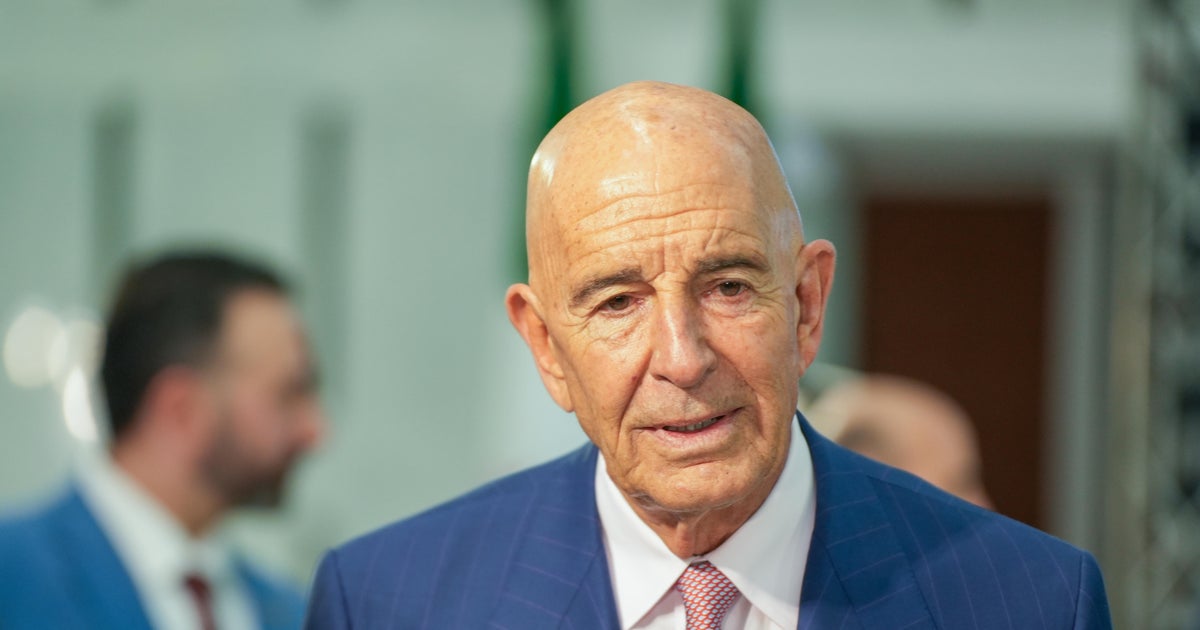The political force of Trump and Franklin Graham
The preacher and the president, seated side-by-side Wednesday in the lit-for-television Capitol Rotunda, leaned a few inches closer. The Rev. Franklin Graham whispered something to President Trump, who listened as he kept his eyes on the pine casket at the center of the room.
They were there to honor Graham's father, the Rev. Billy Graham, pastor to presidents of any party and minister to millions more over seven decades. But that fleeting moment was a sign that the son has the ear of a president, and the kind of access to power that the elder Graham came to regret.
"Looking back, I know I sometimes crossed the line, and I wouldn't do that now," Billy Graham told Christianity Today in 2011.
"My father would not be comfortable with all of the attention in the Rotunda today," Franklin Graham, 65, tweeted after the rare salute this week from political leaders to a religious one.
Mr. Trump attended Friday as Franklin Graham offered the eulogy at his father's funeral in Charlotte, North Carolina. The elder Graham died last week at age 99.
Like Mr. Trump with Twitter, Billy Graham used the cutting-edge technology of his age — television — to spread his message across the nation and around the world. What Mr. Trump might call Graham's "brand" was both evangelical and inclusive.
The preacher, meanwhile, counseled a dozen presidents and grew especially close to Richard Nixon — until the backstory of Watergate made Graham feel used by the disgraced president.
He grew wary after that of mixing pastoral work with partisan politics.
Not so, Franklin Graham with Mr. Trump. The younger Graham never explicitly endorsed Mr. Trump during the 2016 campaign, but the two have in many ways been ideological siblings for years on issues like immigration. They share much the same audience of white evangelicals who form the core of the president's base of support.
"Having Franklin Graham, who was so instrumental, we won so big, with evangelical Christians," Mr. Trump said after the 2016 election at a rally in Alabama. Exit polls suggested 81 percent of white evangelical voters cast ballots for Mr. Trump over Democrat Hillary Clinton.
There are gaps between some evangelical teachings and Mr. Trump's agenda — and certainly his conduct — some scholars say, setting up several potential points of conflict between Graham and Mr. Trump. One is Mr. Trump's record on women. He's accused by more than a dozen women of sexual misconduct, and he was heard on an "Access Hollywood" recording from 2005 boasting of grabbing women. Mr. Trump denies he's ever done so, and Graham has been quoted saying Mr. Trump has changed since then.
Also, Mr. Trump emphasizes power and strength over helping the poor and the powerless, a priority for evangelical Christians and especially Graham's charity, Samaritan's Purse. He does, though, give money to Graham's and other charities.
"I think it likely that, as his father's relationship with Richard Nixon proved to be a low point in his long ministry, Franklin's relationship with President Trump will come to embarrass him," said William Martin, author of "A Prophet with Honor: The Billy Graham Story."
For now, more than a year into Mr. Trump's presidency, the two remain aligned.
Just after Franklin Graham whispered to Mr. Trump, the president delivered a tribute to Billy Graham and said that his own father, Fred Trump, had been a fan.
Mr. Trump and his wife, First Lady Melania Trump, have personally donated to Samaritan's Purse, which was involved in relief work after Hurricane Harvey. Mr. Trump's inaugural committee also kicked in money for several hurricane relief groups, including Graham's.
And much of Mr. Trump's policy agenda aligns with those of evangelicals, who backed his nomination of Neil Gorsuch for the Supreme Court.
Like Mr. Trump, Franklin Graham questioned at one point why former President Barack Obama didn't quickly produce a birth certificate to prove he was born in the United States (he was born in Hawaii).
Graham spoke at Mr. Trump's inauguration, saying, that, "In the Bible, rain is the sign of God's blessing, and it started to rain, Mr. President, when you came to the platform."
He was one of the few religious leaders who offered support for Mr. Trump's proposal to sharply limit immigrants from certain nations. The preacher said in a statement that he backed a closer examination of refugees' views on "freedom and liberty" and that Islamic law was incompatible with the Constitution.
Graham also has said he can separate the conduct of the thrice-married Mr. Trump before he was president from the Mr. Trump who now occupies the White House.
"If Franklin, in his theological universe, understands Trump to have confessed and asked for forgiveness, then there's no problem," said Anne Blue Wills, a religion professor at Davidson College near Charlotte, North Carolina. There's certainly been no public apology from the president.
And she pointed out that thanks to Twitter and widespread White House leaks, Mr. Trump's presidential troubles are extremely public.
"Franklin, it seems to me, has his eyes open a little wider with respect to Trumps' foibles" than Billy Graham and his wife did with Nixon, she said.



